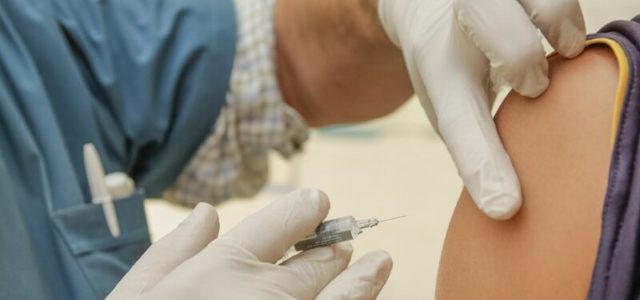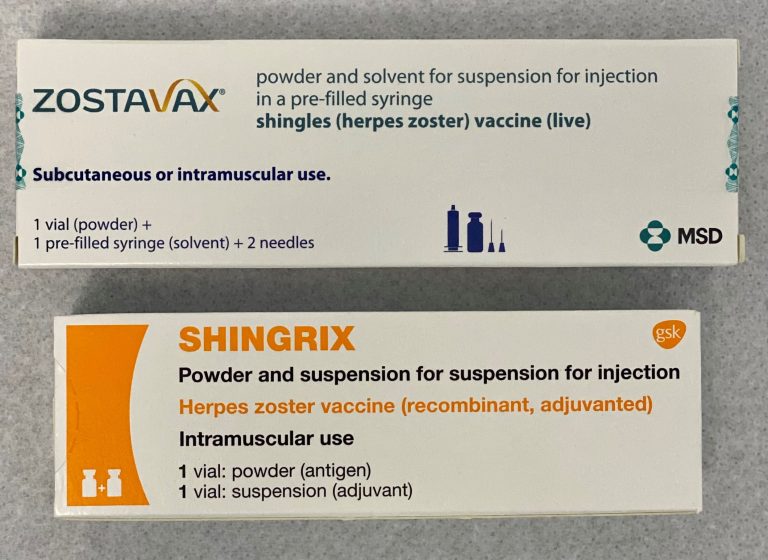ViiV Healthcare, the global specialist HIV company majority owned by GSK plc (LON:GSK), with Pfizer and Shionogi as shareholders, today announced that the European Medicines Agency (EMA) has validated the company’s marketing authorisation application (MAA) seeking approval of cabotegravir long-acting injectable for pre-exposure prophylaxis (PrEP) to reduce the risk of sexually acquired HIV-1. Cabotegravir long-acting for HIV prevention is administered six times per year, after initiation.
Kimberly Smith, M.D., MPH, Head of Research & Development at ViiV Healthcare, said: “With approximately 100,000 people in Europe newly diagnosed with HIV each year, this submission is an important step forward in offering expanded options for HIV prevention.6 Long-acting prevention options, if used appropriately and at scale, could have the potential to transform the shape of the HIV epidemic and we look forward to continuing to work with community groups, governments and regulatory authorities to make this option available for those who need it.”
Submission to the EMA was supported by data from two international phase IIb/III multicentre, randomised, double-blind, active controlled studies, HPTN 083 and HPTN 084, which evaluated the safety and efficacy of cabotegravir long-acting for PrEP in HIV-negative men who have sex with men, transgender women, and cisgender women who were at increased risk of HIV. The studies demonstrated that cabotegravir long-acting for PrEP was superior to daily oral emtricitabine/tenofovir disoproxil fumarate (FTC/TDF), with clinical trial participants experiencing a 69% lower rate of HIV acquisition compared to FTC/TDF tablets in HPTN 083, and a 90% lower rate of HIV acquisition compared to FTC/TDF tablets in HPTN 084. 1,2,3,4
Cabotegravir long-acting for PrEP is currently approved in the US, Australia and Zimbabwe as Apretude.
About cabotegravir extended-release injectable suspension5
Cabotegravir long-acting for HIV prevention is the first and only long-acting injectable PrEP option proven superior to daily oral FTC/TDF in reducing HIV acquisition.
Cabotegravir long-acting for PrEP is an integrase strand transfer inhibitor (INSTI). INSTIs, like cabotegravir extended-release injectable suspension, inhibit HIV replication by preventing the viral DNA from integrating into the genetic material of human immune cells (T-cells). This step is essential in the HIV replication cycle and is also responsible for establishing chronic disease.
Cabotegravir long-acting for PrEP is provided as an injection administered six times per year and is initiated with a single 600 mg (3-ml) injection given one month apart for two consecutive months. After the second initiation injection, the recommended continuation injection dose is a single 600 mg (3-ml) injection given every two months. Vocabria (cabotegravir oral tablets) may be administered for approximately one month before initiating the first injection to assess the tolerability of the medicine.
About HPTN 083 (NCT02720094)1,3
The HPTN 083 trial is a phase IIb/III double blind non-inferiority trial designed to evaluate the safety and efficacy of long-acting injectable cabotegravir for HIV prevention administered every eight weeks compared to daily oral FTC/TDF tablets (200 mg/300 mg). The trial included the prespecified ability to test for superiority of long-acting cabotegravir over FTC/TDF.
The trial design included an oral lead-in phase to assess tolerability to cabotegravir before administering the intramuscular (IM) injection. Each participant was to receive a maximum of three years of blinded trial medication. The trial opened to enrolment in November 2016. HPTN 083 was conducted in 4,566 HIV-negative men who have sex with men and transgender women who have sex with men, who had evidence of behaviour that would put them at high-risk for sexually acquiring HIV-1. The trial is being conducted at research centres in Argentina, Brazil, Peru, the United States, South Africa, Thailand, and Vietnam.
Long-acting cabotegravir was found to be superior to daily oral FTC/TDF in preventing HIV acquisition in the trial population. The most common adverse reactions (all grades) observed in at least 1% of subjects receiving long-acting cabotegravir were injection site reactions, diarrhoea, headache, pyrexia, fatigue, sleep disorders, nausea, dizziness, flatulence, and abdominal pain.
For further information on HPTN 083 please see https://clinicaltrials.gov/ct2/show/NCT02720094.
About HPTN 084 (NCT03164564)2,4
The HPTN 084 trial is a phase III double blind superiority trial designed to evaluate the safety and efficacy of the long-acting injectable cabotegravir for HIV prevention administered every eight weeks compared to daily oral FTC/TDF tablets (200 mg/300 mg) in 3,224 cisgender women who are at increased risk of HIV acquisition. The trial design included an oral lead-in phase to assess tolerability to cabotegravir before administering the IM injection. HPTN 084 opened to enrolment in November 2017 and is being conducted at research centres in Botswana, Kenya, Malawi, South Africa, Eswatini, Uganda, and Zimbabwe.
Long-acting cabotegravir was found to be superior to daily oral FTC/TDF in preventing HIV acquisition in the trial population. The most common adverse reactions (all grades) observed in at least 1% of subjects receiving long-acting cabotegravir were injection site reactions, diarrhoea, headache, fatigue, sleep disorders, nausea, dizziness, abdominal pain, vomiting, myalgia, and rash.
For further information please see https://clinicaltrials.gov/ct2/show/NCT03164564.
GSK is a global biopharma company with a purpose to unite science, technology, and talent to get ahead of disease together. Find out more at gsk.com/company









































